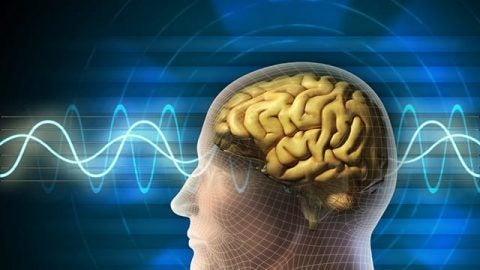It may sound counterintuitive. Weight loss is all about being active and eating right, isn’t it? Turns out, your nocturnal slumber can help you shed pounds and keep the weight off. However, life is all about balance. You can’t sleep all day and expect to trim your figure. If it were that easy, we’d all look like supermodels! So, just how does sleep help with weight loss? Let’s break it down and understand the many components at work!
What Happens When We Lack Sleep?
We’ve all had that week packed with meetings and other obligations that push us to our limits. In our busy world, it comes as no big surprise that 70% of Americans report a lack of sleep at least one day per month. While we can chalk this up as an investment of our time, the real investment comes in the form of a consistent allocation of at least 7-8 hours for uninterrupted sleep every night.

- Much like when you’re intoxicated, the frontal lobe of the brain becomes desensitized, impairing your ability to make good decisions.
- Metabolism slows down.
- The reward system of the brain becomes more active, thus leading to an increased chance of consuming comfort food.
- Studies have directly linked sleep deprivation to the consumption of larger portions at mealtime.
- The body recognizes a problem in the lack of sleep, thus triggering the release of the stress hormone, cortisol. It responds by instructing the body to conserve fat for survival.
- With four or more days of continued sleep deprivation, insulin levels decrease, thus debilitating the body from converting sugars and starches into energy as well as preventing fats from being processed from the bloodstream.
- When you’re sleeping, you’re not eating. It stands to reason the more hours you’re awake, the more opportunities you’ll find to eat when you’re not actually hungry.
It’s clear there’s a lot more than meets the eye when it comes to sleep and nutrition. Research has shown that as little as two weeks of a lack of sleep reduces fat loss by over 50% without an increase in caloric intake.
Rest and Repair

- Toxic neurological waste is removed.
- Nerve cells reorganize for optimal functioning.
- Essential proteins and hormones are released to ensure high levels of energy when you wake up.
- New proteins are synthesized.
- Muscles are repaired.
Especially if you hit the gym or have a physically-demanding job, proper sleep is critical. It’s during this time your body recovers from the stressors of the day to build your muscles stronger for continued physical demands.
Mind over Matter- Setting Yourself up for Success
Especially in a world where convenience foods that delight the palate lurk around every corner, it takes an incredible amount of self-control and emotional stability to make healthy nutritional choices. According to the theory of neuroplasticity, adequate sleep is critical in the maintenance of neural pathways and the organization. Put simply, when you’re not well-rested, your brain is unable to:
- Clear itself of toxic waste buildup
- Benefit from proper communication between neurons

Sleep Helps Manage Emotional Eating

- Proper sleep reduces the release of stress hormones that contribute to emotional distress.
- The emotional-regulating areas of the brain like the amygdala and hippocampus become more active during sleep.
As you can see, sleep is a double-edged sword when it comes to emotional management. One of the most common symptoms of depression is an inability to fall asleep, and this is directly related to the very emotional distress that exacerbates depression. If this sounds like you, it’s a good idea to talk to your doctor about solutions to help you get the sleep you need so you can live a happy, healthy life.
When Is the Right Time to Workout for Great Sleep?

- The Morning Workout
- Could Be for You If:
- You’re a coffee drinker. Your morning caffeine intake can boost your endurance and intensity.
- You have a packed schedule throughout the day and are less likely to have the energy to work out later.
- Probably Not for You If
- You’re not a morning person. You’ll be more likely to skip workouts and never make them up later.
- You’re trying to gain muscle. Morning workouts aren’t the most effective for hypertrophy.
- Could Be for You If:
- The Afternoon Workout
- Could Be for You If
- You’re prone to a dip in energy levels in the mid-afternoon. A lunchtime workout can improve this issue.
- You feel you lack a.m. energy. At this point in the day, you’ve had more time to fuel with breakfast and lunch.
- Probably Not for You If
- Your schedule doesn’t allow for an afternoon workout.
- Your gym is too busy during this time.
- Could Be for You If
- The Evening Workout
- Could Be for You If
- You’re prone to injury. By this time of day, your muscles have had plenty of time to warm up, thus reducing the risk of getting hurt.
- You work during the day and aren’t a morning person.
- Probably Not for You If
- You lack the discipline necessary to workout after a busy day.
- You like to workout outdoors as this time of day can bring about dangers as it gets dark.
- Could Be for You If
Ideally, you don’t want to exercise within two hours of going to bed as this is the time you need your body to start winding down. However, research indicates exercise later in the day is better for sleep than none at all.
Tips to Get the Sleep You Need for Weight Loss
Have you been watching what you eat and getting ample exercise but not seeing the weight loss you feel you should? Before you give up, consider the impact potential sleep deprivation has on your efforts. Even if you’re doing everything else right, your body simply won’t respond the way you want it to if you don’t get the recipe just right.
You might mix up a cake with all the right ingredients, but if you don’t leave it in the oven long enough, you’ll fail.

- At least one hour before you go to bed, shut off your electronic devices.
- Wake up and go to bed at the same time every day. This is relatively routine during the week, but weekends can throw things off. Don’t let this happen.
- Your bedroom is for sleeping. Don’t make a habit of watching television or working in this space.
- Turn off the lights, radio and television when sleeping. It’s difficult to enter the deepest stages of sleep with these distractions in the background. Furthermore, the darkness promotes the production of sleep-inducing melatonin.
- Avoid the consumption of alcohol, caffeine and heavy meals close to bedtime.
- Make sure you have the right mattress. There are a number of components that can disrupt proper sleep like firmness, heat transfer, motion transfer, edge support and durability compromises. Our Ultimate Mattress Buyer’s Guide walks you through everything you need to know as you shop for the right sleep products for your unique needs.
Sleep is an Investment- Make the Most of Every Minute
I get it. Life’s busy. It can often feel like there simply aren’t enough hours in the day to get everything done, and, you know what, maybe there’s not. The beauty lies in the 16 hours you get tomorrow to continue working through your to-do list.
The time set aside for sleep isn’t only an investment. It’s an investment that pays back in terms of improved vitality, energy, and quality of life. So, the next time you consider an all-nighter or late-night study session, remember it can come at the cost of your health.
Did you find this article helpful? Still have questions? We’d love to hear from you! Keep the conversation going below, or share this article to spread the word on how sleep helps with weight loss!


